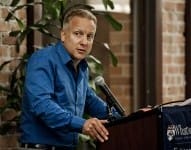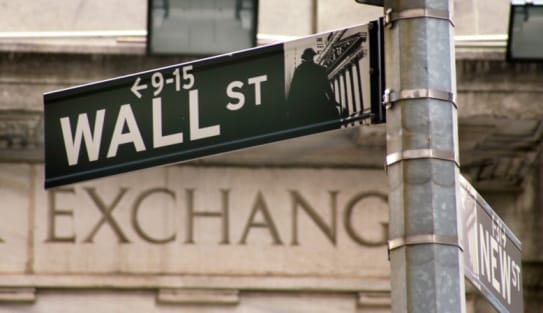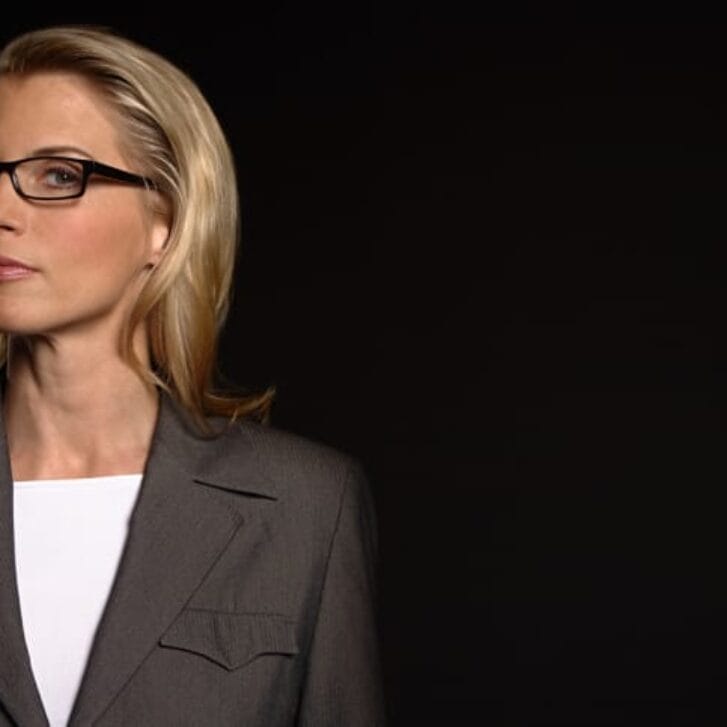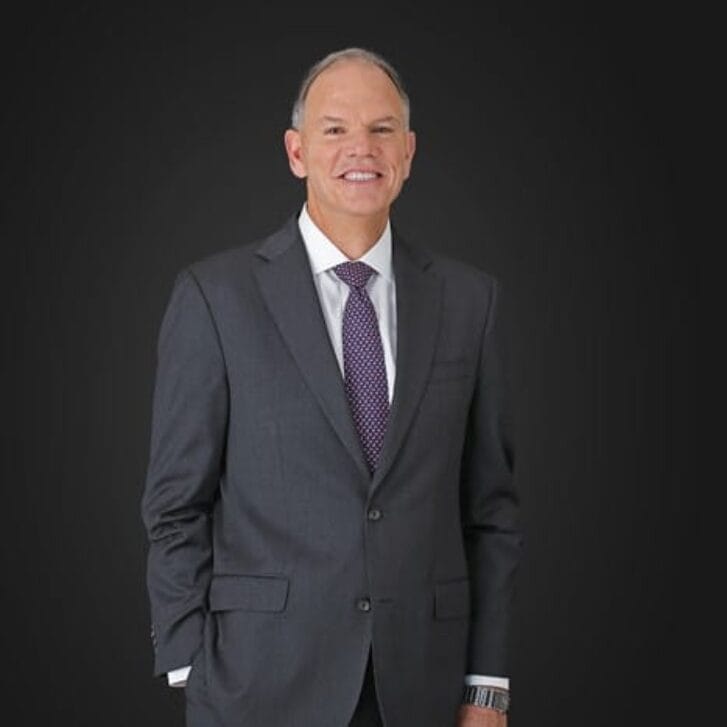After 25 years of entrepreneurship, the new passion of Michael Baum, WG’89, is to keep kids off the streets.
“My job is to keep kids off the Street, and I mean Wall Street,” he said.
This was just one of many compelling insights he shared at the Second Wharton Entrepreneurial Alumni Dinner on Oct. 18 at Wharton | San Francisco.
For the second time this year, Wharton’s West Coast campus was abuzz with Wharton and Penn entrepreneurial alumni who were super excited to be part of the rapidly growing entrepreneurial alumni community in the Bay Area. Entrepreneurs came to the dinner looking to connect, learn what others are doing and do business. We’re proud that Wharton Entrepreneurship continues to play a major role in connecting the alumni network, and the Wharton Entrepreneurial Alumni Dinner is the center piece of our activities. Read about the first dinner here.
This night, Michael took center stage, serving as the keynote talking about “Chasing BIG Ideas.” Like a number of great Wharton entrepreneurs, Michael started his first company with classmates, turning down a lucrative consulting offer at graduation to run Reality, an online software venture that started him on his way to becoming a “startup junkie.” Over Michael’s 25-year career, his work has made a tremendous economic impact:
Five of his six startups have led to acquisitions and the last one, Splunk, remains the largest IPO of 2012. His startups have created 2500 jobs, 120 millionaires and $5 billion in shareholder value.
That’s an impressive record for someone who I still consider to be midcareer.
So what does he think about entrepreneurs and entrepreneurship? Here is Michael’s idea of the defining characteristics of entrepreneurs:

Michael Baum, WG’89
• A desire to change the status quo.
• Audacious.
• Delusional.
Do you agree? Does it bring to mind other professions? His Venn diagram of the overlap between these three traits included politicians, dictators and VCs (though they tend to be more neurotic). But according to him, for entrepreneurs it’s really the drive to change the status quo. Entrepreneurs are never satisfied; they’re not interested in reaching a fixed destination.
Splunk, which collects, indexes and harnesses all the fast-moving machine data generated by applications, servers and devices—physical, virtual and in the cloud—was the game-changer for Michael. It was an eight-year experience and has shaped Michael’s thinking about entrepreneurship. Here’s what he did differently with this startup and what he learned. Some of lessons may sound a bit eccentric, but I think the IPO proves his point:
1. Tackle a really big problem.
2. Build a very difficult product, but make it simple.
3. Invert the business model . (He did this by selling enterprise software to the end user.)
4. Ignore the competition.
5. Treat it like a family (You will spend more time with these people than your real family.)
6. Never pivot.
7. Build a kick-ass team.
Stop and think about these lessons. How do they apply to what you are doing now and how you can do things differently?
Editor’s note: This post first appeared on Wharton’s Entrepreneurship Blog on Nov. 2, 2012.

























